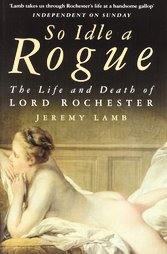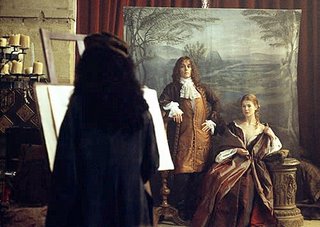Glass in hand...

Legend has that the King and the Wits were discussing to find a word which would rhyme with Lisbon, and our Libertine hero managed, almost in one go, to include Catherine (Kate), Lisbon and his pet hate, Edward Hyde, the Earl of Clarendon (the foremost Minister in Charles’ Council) in a satirical attempt. Rochester proposed:
A health to Kate!
Our Sovereign’s mate,
Of the Royal House of Lisbon
But the devil take Hyde
And the bishop beside
Who make her bone his bone
*
Rochester was of course a drug-addict which brings us to his rock-star type behaviour of quick descent into physical dependency on ever more large doses of drug-intake. His drug was alcohol, still a quite powerful ticket to fast-forward one’s life. Jeremy Lamb’s biography of Rochester deals a lot with alcoholism, to the point of boredom. He stresses though, brilliantly in my view, that much of our Libertine’s whereabouts cannot be separated from the behavioural patterns of an alcoholic. The alternate moods between creative euphoria and self-hating depression, the bursts of violence, both the aphrodisiac and shut-off properties of ethanol, all is very much there.... The film puts it quite well: Rochester always has a glass in hand, a bit like a pro of the diplomatic cocktail circuit (the joke goes that you recognize a diplomat by his arthritis in his right hand.. from holding the ice-cool gin and tonic all his life..) . And the movie puts it quite well too the other major physical affliction of Jay Wilmot: syphilis (fantastic stuff if you want Johnny Depp to have a chance of convincing a forthcoming Oscar jury about his acting performance). http://www.hollywoodjesus.com/movie/libertine/notes.pdf

What we don’t have is a burned-out finale (like Kurt Cobain, Brian Jones or Jim Morrison). He does not OD but has, instead, a rather “silent majority” moralistic end. In his death-bed he turns from atheist into a Catholic, his wife and kids are all around him and he does repent and apologize for his sinful life.. That somewhat surprising decision rises an interesting point: if the impairment of judgement that can be ascribed to a tertiary syphilis brain coupled with all the pathological effects of chronic alcoholism is invoked to justify (that is, attempt at nullify) his bad behaviour, shouldn’t one doubt the mental sanity of his last minute conversion, too?
In any case, it might be interesting to remember that the alter ego of Rochester in Etherege’s play, I mean Dorimant, is not himself a thoroughly radical Don Juan figure. He does not have to face the Commendatore and end up in Hell ( soundtrack by Wolgan Amadeus M.) after repeatedly refusing to repent. Besides, Dorimant and Rochester proper also do not quite carry their utterly ruthless delight in controlling others to the sadistic heights of Valmont or the Marquise de Merteuil. We have here in fact a hybrid. The “rake reformed” pattern plus a “D.Juan”-like biopic. ( For Portuguese consumers only: there is an pious highly-moral equivalent to this hybrid pattern in the figure of Jose Maria Barbosa du Bocage, a XVIII century poet, who also begun as a libertine, a sceptical and a pornographer and ended up conformed and comforted with the Church’s last ointments).
What must surely be stressed in the end is the brilliant quality of Rochester’s writings and the scintillating English of the Restoration play-writers ( Etherege, Wycherley, Dryden, Thomas Otway, the Howards and a few others). Full justice to the supreme wit of their dialogue was done by Stepphen Jeffreys in his modern play (and script). His is a tour de force of bringing to our attention the exceptional life and times of John Wilmot, the 2nd Earl of Rochester.

No comments:
Post a Comment